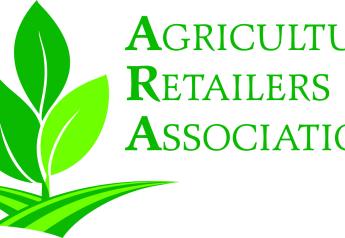U.S. Rail Carriers Could Now Halt Grain Shipments as Early as Wednesday in Preparation of Friday's Possible Strike

Grain shipments on some railroads could stop as early as Wednesday, two days ahead of the possible rail strike. The Biden administration urged railroads and unions to reach a deal and avoid a shutdown of the rail system on Monday, but as the country’s two largest rail unions remain at odds with rail companies, a rail stoppage is growing more likely.
The National Grain and Feed Association (NGFA) was on Capitol Hill Monday, reminding legislators of the economic implications a rail strike would have on the entire economy. Max Fisher, NGFA chief economist, says the association is getting Congress ready to act if they need to stop a rail strike starting Friday, Sept. 16.
“The railroads are already stopping shipments of certain commodities such as hazardous materials, chemicals, etc.,” Fisher told Farm Journal. “We're hearing grain shipments on some railroads could stop as soon as Wednesday.”
As AgWeb first reported in July, a possible strike has been brewing all summer, with NGFA fearful a strike would occur in the middle of harvest. Fisher says even though a strike is prohibited by law ahead of Friday’s deadline, rail companies are shutting down shipments in advance in order to mitigate potential damages.
“The railroads don't want to have the cars and equipment out in areas of the country where they can't protect them very well,” Fisher adds. “So, they're taking steps to mitigate damages. For our members, they're looking at essentially not receiving their grain on time and not being able to then ship out the finished products such as ethanol, flour, things of that nature.”
Impact on Farmers
What will it mean for farmers? Fisher says any action by railroads ahead of the strike this week will cause further delays to an already strained rail system. It will also impact basis levels for farmers.
“From what I'm being told, we really cannot have the railroad stop even for a minute,” Fisher says. “With the railroads, there's so much planning involved in every shipment that if we get them off plan, like have all the workers at home and so forth, it's very hard to get things started again.”
Another potential problem is grain processing facilities and the backlog it could create. Fisher fears some NGFA members will be forced to shut down.
“I think there's a very good chance we're going to have shutdowns in the grain industry and at our processing facilities, not to mention the impact on our exports also,” Fisher says.
According to the Association of American Railroads, railroads transport 1.5 million carloads of grain, including 340,000 carloads of soybeans, annually. In addition, 248,000 carloads of processed soybeans, which primarily consists of soybean meal and soybean oil, are transported each year.
Two Major Rail Unions Still Not on Board
While three additional railroad unions tentatively agreed to the Presidential Executive Board (PEB) recommendations this past weekend, two of the major rail worker unions are still at odds and not on board yet.
“The two remaining unions are the unions that represent the actual operators of the trains,” Fisher says. “They're definitely critical to the operation. Some of the other unions, they're also critical, but we're talking like unions for dispatchers, unions for those who repair the trains, things of that nature, but the unions holding out are the ones who actually operate the trains. So, we will definitely need them on board.”
The Soy Transportation Coalition (STC) joined a large group of agricultural organizations that signed a letter to congressional leaders last week. The letter urged them to intervene to prevent a lockout or strike if the two parties fail to reach an agreement by Sept. 16.
“We are pleased that a growing number of railroad unions are tentatively agreeing to the terms of the proposed contract, but we remain very concerned that we are days away from a potential strike or lockdown,” says Mike Steenhoek, executive director of STC. “Any slowdown or stoppage of rail service, especially on the eve of harvest, would significantly impact farmers ability to meet customer demand, both domestically and internationally.”
It's Up to Congress
While Congress could step in and limit a strike to only a couple days, Fisher says even a short-term stoppage will have a long tail.
“This is a political football, and I'm sure Congress really doesn't want to be in the middle of this, no doubt, they want the two parties to come to an agreement. Ten of the 12 rail labor unions already have come to an agreement. We're trying to convince the rail carriers and the rail labor for the last two unions to come to an agreement; we don't want to have to depend on Congress to solve this. That's kind of our last line of defense, so to speak,” Fisher says.
According to Farm Journal Washington correspondent Jim Wiesemeyer the dilemma is that: "Democrats in Congress could impose a contract more to the unions’ liking than what was recommended by the presidential panel. But that might have trouble getting the necessary Republican support to pass. Republicans could potentially benefit if there was a prolonged rail strike causing problems in the economy right before the election, especially if it could be blamed on the Democrats. This is why some believe Congress will kick the can down the tracks, extending the cooling off period, perhaps past election day, rather than imposing a contract. But that is no long-term solution."
The last time rail workers went on strike was nearly three decades ago. Then, it only lasted a couple of days. With the turmoil on the world stage, the grain industry says preventing a stoppage on U.S. railroads is of great importance.







